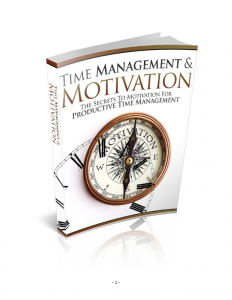
by admin | August 26, 2019 2:18 pm | Health, Main, Success, Well Being
Creating a work-life balance can be tough. It is very hard to find the delicate balance between a happy boss and a happy home life. There are a few things that you should do both at work and at home to create a balanced life.
Because this is such an important topic, it has been covered by groups like Mental Health America, Web M.D., Forbes, and Business News Daily. Instead of sending you all over the Internet to try and find some tips to help you manage your time and create a work-life balance we’ve combined them into five tips that you can create a more balanced life both at home and at work.
One of the best routine tools to use at work is to make a list of tasks based on priority. Prioritizing your work allows you to get the most important things done and using a checklist allows you to see what you have achieved during the day. Having a daily routine will make you less stressed about what you will do each day at work.
Routines are great for home as well. They let everyone know what’s going on and when. However, sometimes you need downtime too. Don’t be afraid to allow yourself and your family some downtime. You can even put it on the calendar if you want to. Scheduling in downtime for you and your family is a great way to make sure you all are able to relax and bond together.
If you can telecommute to work especially on days where you are sick, your children are sick, or the commute will be extra-long due to weather or outside circumstances. Telecommuting is a great way to provide your employer with what they need while giving you some breathing room.
Many of us think we don’t have the ability to say no at work. This results in taking on too many tasks, working overtime, and being stressed about not being able to get everything done. If there’s a job you know, you won’t be able to get done or that you are not suited for say no. You may be surprised at how well this is received by your employer.
It is important to learn how to say no to social events and home life events that will be too taxing as well. Maybe you have social obligations that are just too draining or don’t allow you enough time with your family in the evenings. Cutting these out will help you find balance.
- Learn Your Employer’s Policies
Learning leave, vacation, sick, and disability policies are paramount. Also, learn what telecommunication systems your company has in place. If there aren’t any, you may need to ask. This will alleviate any stress if you need to use vacation or sick days or if you need to telecommute.
If you have children, learn their school’s policies too. Knowing the procedure for turning in sick notes, calling out for the day, or showing up late is going to save a lot of headache for both you and them!
Let your employer know what’s going on. Let them know where you’re at on individual projects if you’re going to be on time ahead of deadline or behind on schedule. Communicating these vital elements to your employer will alleviate stress on the job.
At home, communication is essential. This is even more so if there are marriage and kids at home. Make sure you are letting everyone know what is going on with you. In addition, you need to know what is going on with everyone else.
Set a family meeting once a week to discuss upcoming events, stress points, things that may need planning and other elements of life that could cause stress if not well planned. This simple act will aid in your ability to find that balance between work and home.
These five steps will help you find some balance in your busy life. What are some ways that you have found a balance between work and home that weren’t on our list?

by admin | August 19, 2019 3:19 pm | Health, Main, Psychic, Success
In order to perform your best, you need to be in the perfect state of mind.
That means that you need to have just the right chemical balance of neurotransmitters you need to be slightly aroused and alert but not to the point of being stressed to distraction. During times of relaxation, you, of course, want to tone down that stress to achieve a relaxed state of mind, which is also optimal for being creative.
You can use nootropics, brain training, visualization and more to achieve this, or you can rely on your natural cycles and choose the right time to work. Our body goes through natural cycles based on what we eat, what the weather is like and even our breathing.
But alternatively, you could also consider actively influencing these physiological factors triggering the most desirable mental state for the given activity.
The Role of Physiology
You can also manipulate your physiology to changing your mental state can change the way you feel, act, and perform at any given time.
For example, if you want to be more alert and focused, then you should avoid a heavy lunch. A heavy meal requires energy to digest, and as it triggers the release of feel-good endorphins, which also happen to be inhibitory neurotransmitters, it actually makes your brain more sluggish.
This may be the reason that many people have claimed they feel more alert when they are focussed when they are in this fasted state.
Conversely, if you find yourself becoming anxious and grumpy, then consider seeking out more food to fix that chemical balance.
Likewise, if you turn the temperature down slightly, then you will also increase your arousal. The colder you are, the faster you breathe, and the quicker the blood flows through your veins. You also produce significantly more norepinephrine and testosterone. Consider that this is why it can be such a useful tool to take a cold shower, to jump in a plunge pool, or even to splash cold water on your face.
Another good way to fight the fight or flight response though and to restore your homeostasis/calm is to practice correct breathing. Correct breathing technique is often referred to as ‘belly breathing,’ and it involves first relaxing the diaphragm and then allowing the stomach to expand as the lower portion of the lungs drop into it, before feeling up the top of the lungs and expanding the chest.
This slower, fuller breathing can modulate the response of your parasympathetic nervous system restoring a sense of calm – especially if you make each breath longer and count for 4-5 seconds on every exhale and inhale. Next time you’re about to give a speech or do an interview, try this technique to calm your nerves.
Master Your Emotion
Many of us make the mistake of believing that our emotions arise from our thoughts, but more often it is our thoughts that result from our feelings. And what do our emotions stem from? Our beliefs. These have an evolutionary purpose remember, so they are all about driving us toward survival – finding food, resting when we can and avoiding danger.
If you’re having a bad day, and you think the world kind of sucks, then before you do anything rash, ask if you might be overtired (which makes us groggy but eventually results in a fight or flight response), overly hungry or even ill which can create brain fog by causing inflammation via the release of pro-inflammatory cytokines.
Either way, look after your body if you want to have the best chance of controlling your mind and consider the context for how you’re feeling at any given time. The reason you can’t focus might even be because your belt is digging in…
by admin | August 12, 2019 11:21 am | Main, Tiny Books
[pdf-direct-link url=”https://www.5000ideas.com/wp-content/uploads/securepdfs/2018/12/Time-Management-And-Motivation.pdf”]  [/pdf-direct-link]
[/pdf-direct-link]
by admin | August 5, 2019 3:24 pm | Diet Tips ( I lost 160 LBS), Health, Main
Do you find food to be your only source of happiness? How’s it working out for you?
Chances are, not very good. However, you’re not alone; millions of people around the world suffer from food addiction. Food addiction has nothing to do with being greedy, as some people may wrongfully assume; but rather a psychological condition that binds to food.
So is there any way out? Yes, absolutely. You can and should start implementing the tips below to find happiness in the real things in life, and not be held prisoner by food any longer!
Get In Your Workouts
Exercise is so much more important than making you look good. The health benefits are far superior, with looking good coming as a pleasant bonus. Activity promotes the production of feel-good brain chemicals, known as endorphins, which boost mood, productivity, and sense of wellbeing. Repetition is a very important adjuvant in treating depressive illness, and may in some cases be the primary management technique.
For best results, get in your exercise sessions at least three times per week, up to a maximum of 5 times weekly. You will be surprised how good you feel after six short weeks of starting a new plan.
Re-acquaint Yourself With Nature
When is the last time you spend real time in nature? Living in a concrete jungle, we spend less and less time camping, hiking or just going for walks in the beautiful forests. Mind you, we’re not advocating you get lost in unfamiliar territory, but a light step in nature is sure to give you a deeper appreciation of the beauty in the world.
Better yet, how about picking up gardening? Knowing that you nurtured something from a seedling and watched it grow every day can give you joy like raising a child. Knowing that you made a difference in the world may be all you need to break the psychological addiction to food.
Go Out With Friends
We know, sometimes you end up sacrificing friends for food, the selfish master that leads you down a spiral of depression. However, there is always time. Reconnect with friends you haven’t spoken to in week, months or even years.
You will be amazed at how time flies when you’re out with your friends, and you won’t be held captive by food. Also, you are likely to burn a few more calories than you would if you were just at home, and the memories you form from your adventures will give you pleasure for a long time to come. Not the short bouts of up, followed by severing downs that food is notorious for doing.
Practice Meditation
Meditation is no longer some obscure practice followed by just a few but has spread to the mainstream population thanks to its proven benefits on health. Though the addiction to food is a real psychological condition, meditation can help you break the bonds by increasing your appreciation for other things in life, bringing profound happiness. Mindfulness rises, and you experience pleasure and thankfulness for everything in your life.
Get A Pet
A pet can deliver tons of happiness in your life, motivating you to break free from using food as your motivation. Having someone (yes, your pet) that loves you infinitely is a powerful motivator of happiness, and works in most cases. Adopt a puppy or kitten, and you will have tons of fun and pleasure for years to come.
Conclusion
Food needs to resume its real function, being used for fuel and subtle pleasure. It was not meant to become a source of happiness, and this may have been inadvertently promoted due to the marketing of sugary junk.
Go live in the real world, and find your true happiness.



 [/pdf-direct-link]
[/pdf-direct-link]
Recent Comments